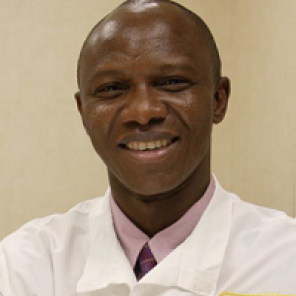
Okunseri is also an adjunct Professor at the Medical College of Wisconsin and a Diplomate of the American Board of Dental Public Health. He received his B.D.S (equivalent to D.D.S.) degree from the University of Benin School of Dentistry, Edo, Nigeria. Okunseri received his M.Sc. in Dental Public Health from the Eastman Dental Institute for Oral Health Care Sciences, University College London, England and completed a residency program in Dental Public Health at the Montefiore Medical Center at the Albert Einstein College of Medicine, Bronx, N.Y. Okunseri also received a Diploma in Dental Public Health from the Royal College of Surgeons in England, a fellowship certificate from the Royal College of Surgeons, Dublin, Ireland and holds a M.S. in Leadership Studies from Marquette University, Milwaukee, Wisconsin.
1. How did you first hear about AADR and what motivated you to join?
I first heard about AADR during my dental public health residency at Montefiore Medical Center in Bronx, N.Y. When I became an Assistant Professor at the University of Minnesota School of Dentistry, Minneapolis, I was motivated to join because it provided me a forum to disseminate my research findings. I submitted an abstract and it was accepted for presentation at a joint IADR/AADR meeting. The opportunity was excellent because I was able to interact with researchers presenting cutting-edge research in different areas from various institutions across the globe.
2. What do you find to be the most valuable benefit of AADR membership?
To me, the most valuable benefit of AADR is the opportunity it affords to network with other researchers across the country, and through its affiliation with IADR, across the globe. With an AADR membership, I am able to serve on committees such as the IADR Unilever Social Entrepreneur Approach to Change Oral Health Behavior Research Award Committee and the AADR Committee on Diversity and Inclusion. These committees are focused on addressing key issues to strengthen and grow the organization and provide membership value.
3. You are very active within the IADR Behavioral, Epidemiologic and Health Services Research Group (BEHSR). How did you first get involved and what has motivated you to continue your involvement?
My involvement with IADR’s Behavioral, Epidemiologic and Health Services Research Group (BEHSR) started when I was in the process of submitting an abstract and choosing where it should be reviewed. BEHSR was a natural fit with my research interest and focus. BEHSR is unique, multidisciplinary and has continued to be a dynamic group with forward-thinking membership and leadership. Over the years, I have served on various committees within the group and in different leadership roles including: Alternate Councilor (2008/09), North American Director (2009-12), Symposium Coordinator (2012/13), Group Program Chair (2013/14), President-elect (2014/16) and President (2016/17). Currently, I serve as the Immediate Past-president of the group and have seen the group grow and remain one of the largest groups in IADR. BEHSR continues to witness membership growth, especially among students, and the leadership has identified strategies to keep everyone engaged, including mentorship programs and opportunities for intra- and cross-disciplinary collaboration. I identify with these goals and remain committed to the group’s aspirations.
4. You are also a member of the IADR Cariology Research group. How has being involved in two IADR Groups/Network enhanced your career and IADR membership experience?
Cariology is another research interest of mine and my membership of the IADR Cardiology group has helped to bring me closer to other researchers in this area whom I would not have had the opportunity to meet otherwise during my research career. I am able to network with cardiology researchers and explore opportunities for research collaboration. On a couple of occasions, I have submitted meeting abstracts to the group which have been accepted for publication.
5. What do you want to see in the future for AADR?
In the future, I would like to see AADR continue their efforts in advocating for research funding and increasing their engagement with federal funders, such as National Institutes of Dental and Craniofacial Research, and other foundations to ensure appropriate funding for all research disciplines.




